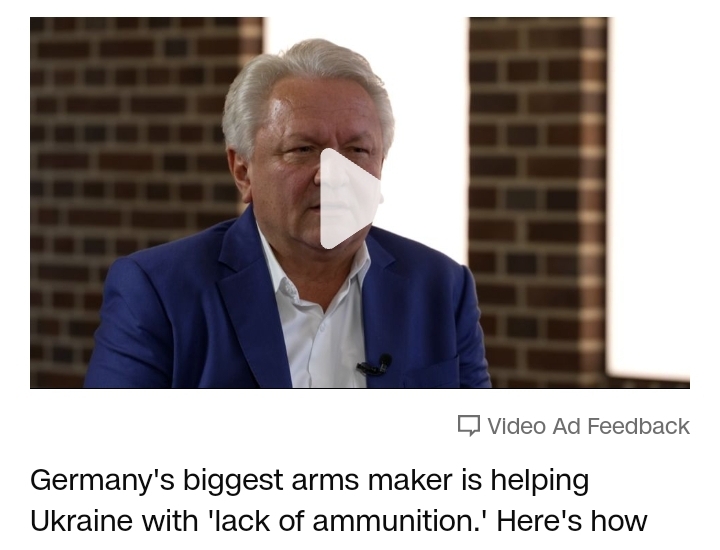US intelligence discovered earlier this year that the Russian government planned to assassinate the chief executive of a powerful German arms manufacturer that has been producing artillery shells and military vehicles for Ukraine, according to five US and western officials familiar with the episode.
The plot was one of a series of Russian plans to assassinate defense industry executives across Europe who were supporting Ukraine’s war effort, these sources said. The plan to kill Armin Papperger, a white-haired goliath who has led the German manufacturing charge in support of Kyiv, was the most mature.
When the Americans learned of the effort, they informed Germany, whose security services were then able to protect Papperger and foil the plot. A high-level German government official confirmed that Berlin was warned about the plot by the US.
For more than six months, Russia has been carrying out z sabotage campaign across Europe, largely by proxy. It has recruited local amateurs for everything from arson attacks on warehouses linked to arms for Ukraine to petty acts of vandalism — all designed to stymie the flow of weapons from the West to Ukraine and blunt public support for Kyiv.
But the intelligence suggesting that Russia was willing to assassinate private citizens underlined to Western officials just how far Moscow was willing to go in a parallel shadow war it is waging across the west.
Papperger was an obvious target: His company, Rheinmetall, is the largest and most successful German manufacturer of the vital 155mm artillery shells that have become the make-or-break weapon in Ukraine’s grinding war of attrition. The company is opening an armored vehicle plant inside of Ukraine in the coming weeks, an effort that one source familiar with the intelligence said was deeply concerning to Russia. After a series of gains earlier this year, Moscow’s war effort has once again stalled amid redoubled Ukrainian defenses and punishing losses in personnel.
The series of plots, not previously reported, helps explain the increasingly strident warnings from NATO officials about the seriousness of the sabotage campaign — one that some senior officials believe risks crossing the threshold into armed conflict in eastern Europe.
“We’re seeing sabotage, we’re seeing assassination plots, we’re seeing arson. We’re seeing things that have a cost in human lives,” a senior NATO official told reporters on Tuesday. “I believe very much that we’re seeing a campaign of covert sabotage activities from Russia that have strategic consequences.”
The National Security Council declined to comment on the existence of the Russian plot and the US warning to Germany. But, NSC spokesperson Adrienne Watson said in a statement, “Russia’s intensifying campaign of subversion is something that we are taking extremely seriously and have been intently focused on over the past few months.
“The United States has been discussing this issue with our NATO Allies, and we are actively working together to expose and disrupt these activities,” she said. “We have also been clear that Russia’s actions will not deter Allies from continuing to support Ukraine.”
The National Security Council declined to comment on the existence of the Russian plot and the US warning to Germany. But, NSC spokesperson Adrienne Watson said in a statement, “Russia’s intensifying campaign of subversion is something that we are taking extremely seriously and have been intently focused on over the past few months.
“The United States has been discussing this issue with our NATO Allies, and we are actively working together to expose and disrupt these activities,” she said. “We have also been clear that Russia’s actions will not deter Allies from continuing to support Ukraine.”
German officials declined to comment on the specifics of CNN’s reporting. But speaking on the sidelines of the NATO summit in Washington on Thursday, Germany’s Foreign Minister Annalena Baerbock said it shows how Russia is “waging a hybrid war of aggression” on European allies.
“We have seen that there have been attacks on factories. And this underlines once again that we as Europeans must protect ourselves as best we can and not be naive,” Baerbock said.
In a separate statement sent to CNN, the German Interior Ministry said that Berlin “will not be intimidated by the Russian threats,” emphasizing that they are fundamentally aimed at “undermining the support of Germany and our partners for Ukraine in its defense against the Russian war of aggression.”
A spokesman for Rheinmetall, Oliver Hoffman, declined to comment.
